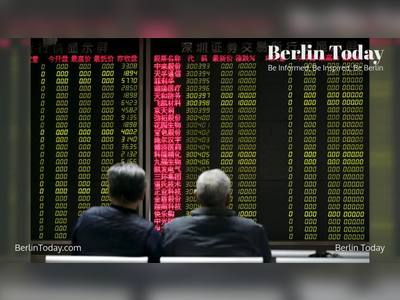German Foreign Minister Baerbock Defends UN General Assembly Candidacy Amid Backlash
As criticism mounts, Baerbock emphasizes collaboration in her nomination process while facing scrutiny over her predecessor's exclusion.
German Foreign Minister Annalena Baerbock has addressed criticisms regarding her candidacy for the presidency of the United Nations General Assembly.
During her remarks at the 'Europe 2025' conference in Berlin, Baerbock highlighted the importance of the coming year for the General Assembly, noting the pivotal task of finding a successor for UN Secretary-General António Guterres.
"This is going to be a crucial year for the General Assembly," she stated, acknowledging the need for extensive discussions to find a broadly acceptable candidate.
In response to allegations suggesting she was undermining her predecessor, Helga Schmid, Baerbock asserted that her nomination was a product of collective preparation and a shared thematic vision.
She clarified, "The German candidacy was, of course, prepared together, as well as the thematic setting; therefore, this is not about individual persons," and highlighted Schmid’s ongoing involvement in the process, affirming, "Schmid will continue to play a leading role."
The nomination has attracted criticism from several quarters, notably from Christoph Heusgen, a former German UN ambassador, who expressed his concerns about the implications of Baerbock's nomination for Germany's credibility at the UN. He emphasized that the UN should not serve as a platform for personal political agendas, stating, "The UN is not a self-service shop."
Heusgen noted that the initial proposal had been to nominate Schmid, whom he described as an ideal candidate due to her diplomatic experience and skills in managing relations among major world powers.
He stated, "Helga Schmid is the best German diplomat.
She has brought together Russians, Chinese, Europeans, and Americans, and she co-negotiated the Iran agreement.
She was the ideal candidate to hold the 193 member states of the General Assembly together."
Heusgen expressed disappointment over the abrupt shift in nomination strategy, reiterating his concerns about Germany’s approach to the UN General Assembly presidency, which is allocated to the Western European regional group for the session period 2025/26. He pointed out that Schmid had already received official backing and had engaged with over 100 delegations prior to the announcement of Baerbock's candidacy.
He remarked, "Then suddenly this turnaround occurs.
A UN colleague wrote to me: 'We thought this only happens in authoritarian states.'"
While acknowledging Baerbock’s political abilities, Heusgen categorized her as a potentially divisive figure, raising questions about her capacity to unify various interests within the UN framework.
He asserted, "It cannot be the case that the UN is seen as a self-service shop.
Germany does not do itself any favors with this."
The election for the UN General Assembly presidency will be held in early June 2025, with the successful candidate assuming office in September for a term of one year.
During her remarks at the 'Europe 2025' conference in Berlin, Baerbock highlighted the importance of the coming year for the General Assembly, noting the pivotal task of finding a successor for UN Secretary-General António Guterres.
"This is going to be a crucial year for the General Assembly," she stated, acknowledging the need for extensive discussions to find a broadly acceptable candidate.
In response to allegations suggesting she was undermining her predecessor, Helga Schmid, Baerbock asserted that her nomination was a product of collective preparation and a shared thematic vision.
She clarified, "The German candidacy was, of course, prepared together, as well as the thematic setting; therefore, this is not about individual persons," and highlighted Schmid’s ongoing involvement in the process, affirming, "Schmid will continue to play a leading role."
The nomination has attracted criticism from several quarters, notably from Christoph Heusgen, a former German UN ambassador, who expressed his concerns about the implications of Baerbock's nomination for Germany's credibility at the UN. He emphasized that the UN should not serve as a platform for personal political agendas, stating, "The UN is not a self-service shop."
Heusgen noted that the initial proposal had been to nominate Schmid, whom he described as an ideal candidate due to her diplomatic experience and skills in managing relations among major world powers.
He stated, "Helga Schmid is the best German diplomat.
She has brought together Russians, Chinese, Europeans, and Americans, and she co-negotiated the Iran agreement.
She was the ideal candidate to hold the 193 member states of the General Assembly together."
Heusgen expressed disappointment over the abrupt shift in nomination strategy, reiterating his concerns about Germany’s approach to the UN General Assembly presidency, which is allocated to the Western European regional group for the session period 2025/26. He pointed out that Schmid had already received official backing and had engaged with over 100 delegations prior to the announcement of Baerbock's candidacy.
He remarked, "Then suddenly this turnaround occurs.
A UN colleague wrote to me: 'We thought this only happens in authoritarian states.'"
While acknowledging Baerbock’s political abilities, Heusgen categorized her as a potentially divisive figure, raising questions about her capacity to unify various interests within the UN framework.
He asserted, "It cannot be the case that the UN is seen as a self-service shop.
Germany does not do itself any favors with this."
The election for the UN General Assembly presidency will be held in early June 2025, with the successful candidate assuming office in September for a term of one year.
AI Disclaimer: An advanced artificial intelligence (AI) system generated the content of this page on its own. This innovative technology conducts extensive research from a variety of reliable sources, performs rigorous fact-checking and verification, cleans up and balances biased or manipulated content, and presents a minimal factual summary that is just enough yet essential for you to function as an informed and educated citizen. Please keep in mind, however, that this system is an evolving technology, and as a result, the article may contain accidental inaccuracies or errors. We urge you to help us improve our site by reporting any inaccuracies you find using the "Contact Us" link at the bottom of this page. Your helpful feedback helps us improve our system and deliver more precise content. When you find an article of interest here, please look for the full and extensive coverage of this topic in traditional news sources, as they are written by professional journalists that we try to support, not replace. We appreciate your understanding and assistance.











